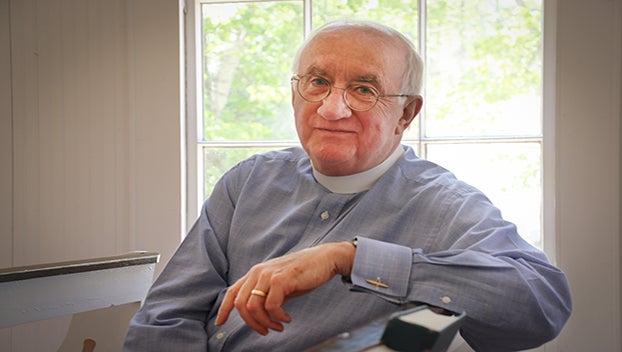The healing of nature
Published 6:20 pm Sunday, January 7, 2018
It all comes back to dirt.
The former soldier was near broke, buffeted by the cruelties of transition from warrior to civilian, struggling with recovery from substance abuse and whiplashed by several suicides among fellow vets. He had difficulty keeping a job and was isolated from others by chance and design, especially from the close support group that he counted on while serving.
Seeking a step to begin the climb out of the morass of the present, he chose to plant that first seed to the next season of his life in the soil of an organic farm for veterans. Metaphors abound in this conversion, but the veteran simply went back to the basics of planting and harvesting, as he himself became a seed looking for the earth to nourish his own growth, while growing food for the local community.
Healing is an equal opportunity adventure, searching for hooks on which to attach experience like a climber pounding pitons into a cliff to pull his body up its sheer face. Toiling in the sun and heat of summer to nurse those first few crops to a successful fall harvest was that first hook for the veteran. Without sounding too “out there,” he became part of the cycle of life and just one of the many species in the local ecology.
Evolutionary biologist E.O. Wilson proposed a condition called biophilia, in which humans are innately and emotionally attached to the natural world. So far, I have introduced the role of the individual and the human community in successful healing — making oneself whole again. Both have the capacity to engage and provide means and ways to engage healing for veterans suffering from emotional and physical trauma. However, as Wilson has eloquently written, there is a role for nature in that healing process, and making oneself whole means seeking out the community that we often take for granted, or enter just to step outside to get from one place to another — the great outdoors. There is a reason why every year more people visit zoos, why those who can afford it build houses close to oceans and lakes, nestled next to or in forests or high in the mountains, why ecotourism has become a multibillion-dollar business, and why GoPro cameras strapped to surfboards, mountain bikes and hang gliders have proliferated. According to Wilson, we are already wired for this affection toward nature.
Studies show that being in the natural environment, complete with its unique sounds, smells, feel and colors, and teaming with the diversity of life, can quiet or spell the expressions of emotional stress caused by mental disorders such as PTSD, depression and addiction. This experience can also help in easing chronic pain and can provide a natural amphitheater to build supportive communities.
There are nonprofits that use surfing, fly-fishing, scuba diving and hiking to bring veterans together to seek the company of other vets, but these activities also help the vet become part of the larger community of nature to promote healing. For example, Combat Warriors Inc. hosts active military around the country to hunt and build community with other service members during weekend retreats. There are also retreats for women vets to “get away.” They spend time playing in nature, and for some, painting nature, while also convening among majestic pines, on isolated beaches or high in the mountains, to reflect but also to forge community among those who share similar experiences and expressions of stress. Walter Reed National Military Medical Center built a two-acre “green road” through an undeveloped part of its campus, where patients and families traverse the paths that snake though streams and wind though a small forest of trees and other vegetation, while also meeting other patients. Just moving through nature and stopping to smell the roses can promote healing.
As the farmer veteran discovered, working in nature to sustain or profit from the bounty of the harvest he helped produce also leads to healing. Learning new skills, watching efforts to literally grow pay off, gaining confidence to succeed in the task — all can translate to other goals and are critical to making oneself whole. Working with one’s hands in mother earth accentuates and amplifies nature’s power to heal.
Pamlico Rose Institute and Arts of the Pamlico are coming together to build a healing and creative landscape and gardens at Rose Haven on Third Street, the reintegration home for female veterans in Washington. The purpose of the landscape is to provide the residents with sustainable nature right outside their back door: a place to meditate and reflect; a space to come together surrounded by trees, shrubs, flowers and art; and a garden to seed and harvest and donate its fruits to food pantries. The gardens will also be a catalyst to bring other veterans in the community to enjoy the benefits of nature. And like the farmer veteran, the gardens offer a chance to plant confidence and cultivate the success of achievement in the residents.
As I said, it all comes back to dirt.
Robert Greene Sands is an anthropologist and CEO of the non-profit Pamlico Rose Institute for Sustainable Communities located in Washington.





